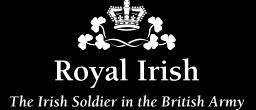Explore Listing
The incident known as the 'Flight of the Wild Geese' refers to the 14,000 Irish Jacobite soldiers who sailed with their families from Ireland to France under the military provisions of The Treaty of Limerick of 1691. Under the command of Patrick Sarsfield, they continued to serve the cause of Catholic King James II during the Nine Years War.
 Strategically important, the Dardanelle Straits are a narrow stretch of water linking the Sea of Marmara to the Aegean while simultaneously separating the continents of Asia and Europe. In the First World War, gaining passage from the Black Sea to the Mediterranean and Asia via this route became increasingly important for the alliance with Russia.
Strategically important, the Dardanelle Straits are a narrow stretch of water linking the Sea of Marmara to the Aegean while simultaneously separating the continents of Asia and Europe. In the First World War, gaining passage from the Black Sea to the Mediterranean and Asia via this route became increasingly important for the alliance with Russia.
This piece of silver known simply as ‘The Grim Reaper’ was commissioned by the former officers of the 3rd (Co Down) Battalion The Ulster Defence Regiment (3 UDR), in January 1993. It commemorates the passing of the battalion into history on the merger of The Ulster Defence Regiment with The Royal Irish Rangers in June 1992 to form The Royal Irish Regiment.
This badge has symbols which record important events in the history of the Regiment
The Prince of Wales feathers and harp were bestowed on the 87th Regiment following its great victory at the Battle of Barrosa in 1811. The flaming grenade was a common element in the cap badges of all infantry regiments granted the distinction 'Fusiliers'. In 1827, King George IV approved the 87th this distinction with the title 'Prince of Wales's Own Irish Fusiliers' and some months later adding 'Royal' to become 'Royal Irish Fusiliers'.
The 'Report of the Advisory Committee on Police in Northern Ireland' was better known by the name of the committee’s chairman (Baron John Hunt CBE DSO - who led the 1953 British Expedition to Mount Everest) as the Hunt Report. The report recommended that a locally recruited part-time force, under the control of the General Officer Commanding (GOC) Northern Ireland, should be raised as soon as possible for duties as directed by the GOC. The police (the Royal Ulster Constabulary), and its part-time Ulster Special Constabulary, were therefore relieved of all duties of a military nature.
When in March 1857, Sepoy Mangal Pandey attacked British officers at the military garrison in Barrackpore, he was arrested and then executed on 8 April. Later that month, Sepoy troopers at Meerut, Bengal, refused to use the new Enfield rifle cartridges, and, as punishment, were given long prison sentences. This punishment only served to incense their fellow Sepoys, who rose on 10 May 1857, shot their British officers, and marched to Delhi.
The 1st Battalion The Royal Inniskilling Fusiliers arrived in Tientsin in North China in November 1909, having sailed from Malta in HM Troopship Soudan almost two months earlier. Battalion Headquarters was at Tientsin with one company immediately dispatched to guard the British Legation in Peking in the wake of the Boxer Rebellion (1900-1901). Apart from the British there were also troops from the USA, Holland, Germany, France, the Austro-Hungarian Empire, Russia and Japan all guarding their respective legations. Duties were light, apart from guards, parades and route marches, with plenty of time for sport.
Following the Jacobite failures to capture Londonderry and Enniskillen in 1689, King James II looked to his sponsor, Louis XIV of France, to provide military support for his campaign in Ireland. Louis agreed but insisted on an exchange of troops. In early May 1690 5000 veteran French cavalry and infantry landed in Ireland under General Lauzun to bolster James's army and five regiments of Jacobite Irish were dispatched to France under the command of Justin McCarthy (Lord Mountcashel). These regiments became France's famed "Brigade irlandaise" or The Irish Brigade.
By Richard Doherty, military historian, writer and broadcaster.
A Militia is a military force raised from the civilian population to supplement a regular army in an emergency. In 1661, after the Restoration of the monarchy a Militia was raised by the Duke of Ormonde. The force of about 15,000 men was exclusively Protestant and saw service during the Williamite/Jacobite war.
Final verses of 'The Lad' by W F Marshal:
But A'm lonesome now for he went away,
An me sight is getting dim;
But I didn't ask tae hold him back
When they needed men like him.
He's sleepin now where the poppies grow,
In a coat that the bullets tore,
An what use is a wheen o medals tae me
When me own wee lad's no more?





